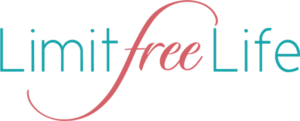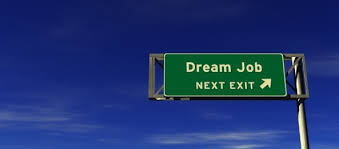“Love and work are the cornerstones of our humaness.” – Sigmund Freud
Love and work are both critical to our happiness, sense of purpose and well-being on this planet. Little else matches their significance in our lives. They take different forms, love of a child or pet, and work that is philanthropic all count equally.
We grow up knowing that many decisions await us. Who will we choose to be with and who do we choose to be are biggies. How well do we make these complicated decisions? It appears, given the 50% divorce rate and the 75% who are unhappy at work, that as a society, we make them rather poorly. Apparently, many people end up in jobs or careers they don’t enjoy very much. Let me present some ideas that may help you make better career decisions.

When I was a young teen, my father, after considerable soul searching, chose to reinvent himself in mid-life and sold a very successful orthodontic practice in a wealthy suburb of Boston to pursue a dream of his to be a research scientist. He went back to school and did post-graduate work at MIT and then began to pursue an academic/research career, which took us from Boston to UCLA and then to the University of North Carolina all during the time I was in junior high and high school.
There were many sacrifices made during that period, several hard lessons learned, and lots of transition, but my father’s career satisfaction and positive feelings and engagement in work were crucial to our family’s stability and prosperity.
He carefully planned and crafted a new and more fulfilling career in academics and research (the choice he had wanted for himself before he pursued his parent’s dream). I tell this story because of all the lessons learned from my experience with his career transition and the beliefs I have as a result of it.
His experience illustrates a few points beautifully:
- The way in which people choose their careers in the first place and how external influences enter the decision-making process and lead the journey.
- The way your life and career look on the outside to others doesn’t always reflect your feelings about it, and those two perceptions can get very confused. The question isn’t whether you should be happy with what you have created, but whether you are.
- That for some people, the work they do is a key to their happiness and satisfaction with life, and to be fulfilled they need a meaningful career that reflects who they are.
- That sometimes a major change is necessary and the short term upset to your life and other’s lives may be necessary to achieve a longer-term goal and reach a higher level of happiness.
- Career transition for the right reasons, is a good idea at any age.
Decisions around careers influence everything else in your life; health, relationships, wealth, freedom, where you live, how you live, how you parent and how much power you feel you have over your life.
There are those enviable few who know, from the time they are small, what they want to do professionally and they never lose sight of their dream. I love the stories of the kids who knew at age 5 that they wanted to be a doctor. They played doctor, took all the pre-med high school classes and chose a college that would lead them in their chosen direction.
They were driven by an inner knowing that this was their chosen path and that energy propelled them toward their goals. People in that position never appear to have given in to over analysis or a troubling questioning of their decision.
If we weren’t sure from the start who we wanted to be, which most of us are not, it only gets more complicated as we age. We validate our process by using what we know (or think we know) about what life should be and how others live, and we lose our intuitive sense of what we truly want.
We become less sure of ourselves, we are less in touch with our feelings and we begin to tell ourselves how we should feel instead of how we do feel. Our inner knowing gets suppressed by our “knowledge.” We make decisions from a perceived vantage point of sensible, conformity thinking, and we can misinterpret this as good decision-making.
Sound reasoning does resonate in the decisions people make but the reasons often come from the intellect and not from the heart. Sometimes they are made as a result of other people, influential in our lives, who lean us toward something safer and more practical because they “want what is best for us.” We lose our confidence to make decisions on our own behalf and start listening to everyone else’s opinions of what we would be best at and what might make the most sense from an employability standpoint.
The best choices ultimately allow us to be true to our essence. Taking into account what matters to us, and how we want to contribute to the world, and to design a career around our natural interests, strengths and talents.
This doesn’t mean that we can necessarily create a career out of any interest we have, or that we will feel fulfilled right from the start of our journey. There may be early struggles with even the most wisely chosen path.
It is an ironic truth that when children are really young they are told they can be anything when they grow up and they are asked “what do you want to be?” before they have any idea what choices exist in the world.
Then instead of broadening the spectrum of possibilities for kids growing up, we start narrowing them down almost as soon as we get them seriously thinking about choices.
Young people don’t realize the importance of choosing for themselves. They think any reasonable choice will be fine, because they are still naive as to how much your career will matter to you and those around you, as you go through life.
Most people who truly love what they do, and joyously wake each day excited to go to work, made it to where they are by following different guidelines. Mostly, it seems they followed their heart and looked inward more than considering external factors. They also view work more holistically, as an integrated part of life, versus a separate job you do, so that life can happen.
We are expected to use all of our heart, mind and soul when looking for that great relationship, but not when choosing work. Yet your work really represents a relationship with yourself, and this may be your most important relationship. If you can see your true, authentic self, reflected in the work you do, you probably have figured it out and chosen well, and are waking joyously now.
Make your career decisions from a place of deeper awareness. Those are the choices worth transitioning your life to achieve. You will ultimately be rewarded with a richly fulfilling career that will greatly enhance every other aspect of life.


